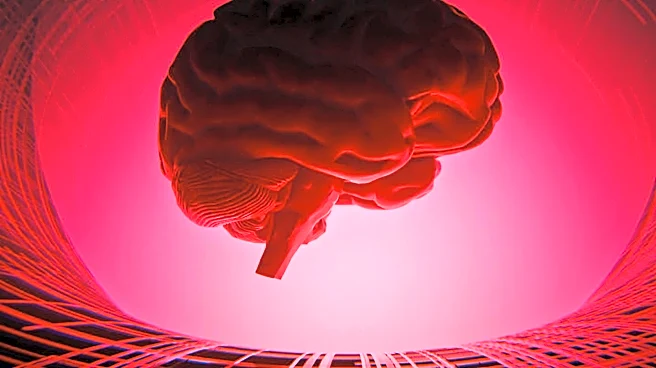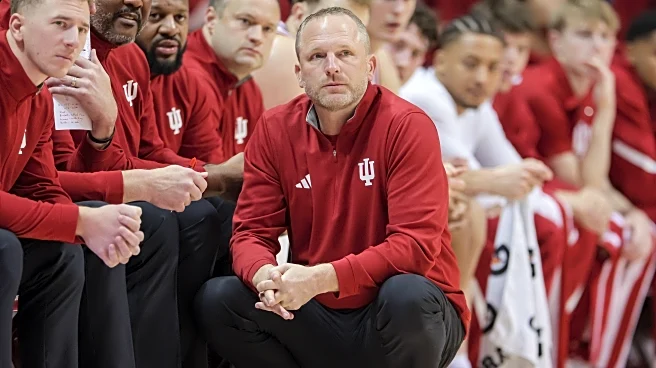What's Happening?
A recent study published in PLOS Biology reveals that sleep-like slow-wave brain activity can persist for years in surgically disconnected brain hemispheres of awake epilepsy patients. Researchers, led by Marcello Massimini from Universita degli Studi
di Milano, used EEG recordings to observe these patterns, which resemble those seen in deep sleep, anesthesia, or vegetative states, suggesting limited or absent consciousness. The study focused on 10 pediatric patients who underwent hemispherotomy, a surgical procedure aimed at treating severe epilepsy by disconnecting diseased neural tissue from the rest of the brain. Despite the disconnection, the isolated cortex exhibited persistent slow waves, raising questions about the functional role of these patterns and their implications for consciousness.
Why It's Important?
This study is significant as it challenges existing notions of consciousness and brain activity in disconnected neural systems. The findings suggest that isolated brain tissue can maintain sleep-like activity, which may not correlate with awareness. This has implications for understanding brain dynamics post-surgery and could influence future neurosurgical practices and epilepsy treatments. The research also reignites philosophical debates about consciousness, particularly in cases where brain tissue is behaviorally inaccessible. It prompts scientists to reconsider what brain activity signifies in terms of consciousness, potentially impacting clinical approaches to treating epilepsy and other neurological conditions.
What's Next?
Further research is needed to explore the functional role of these persistent slow waves in disconnected brain hemispheres. Researchers may conduct intracranial recordings to better characterize the slowing observed at the scalp level. This could provide deeper insights into the long-term effects of cortical disconnections and their impact on consciousness. Additionally, the study may inspire new collaborations between neuroscientists and philosophers to address the complex questions surrounding consciousness in isolated neural systems. Clinical outcomes may also necessitate postoperative invasive monitoring to assess the presence or absence of awareness in disconnected brain tissue.
Beyond the Headlines
The study highlights ethical and philosophical dimensions of consciousness research, particularly in inaccessible brain systems. It raises questions about the nature of subjective experience and awareness in isolated neural tissue, challenging traditional definitions of consciousness. The findings could lead to a reevaluation of how consciousness is measured and understood in clinical settings, potentially influencing ethical considerations in neurosurgery and patient care.
















